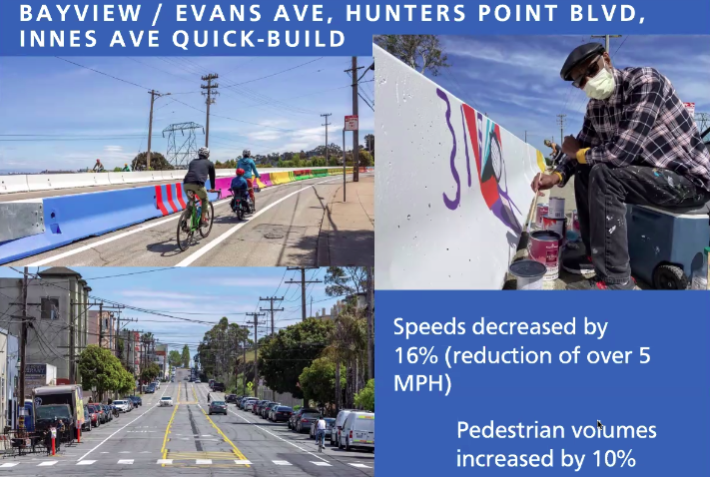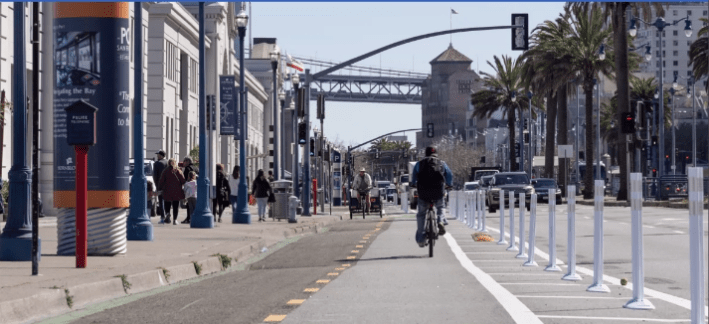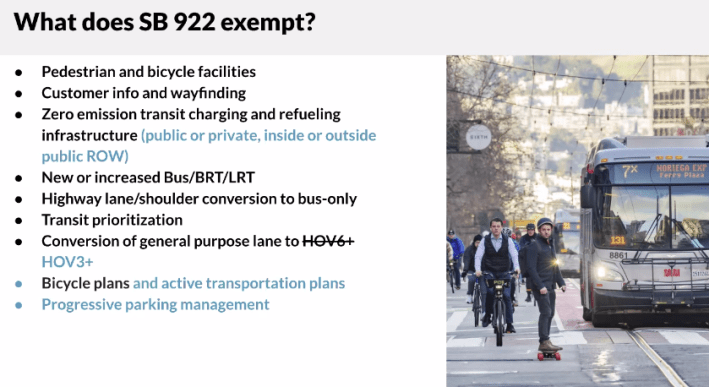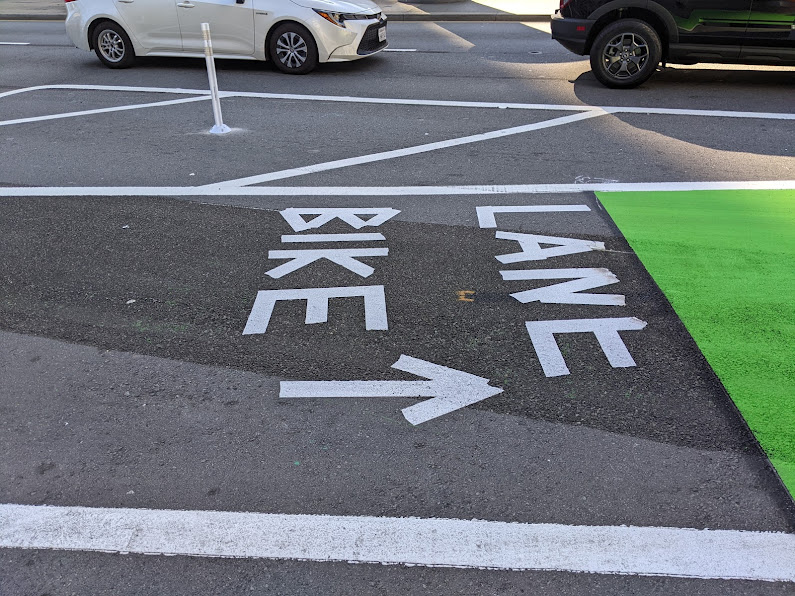Until recently, even something as environmentally friendly and innocuous as a bike lane project could be forced to go through a full-blown, years long "environmental" review.
"Bus Rapid Transit, light rail, pedestrian safety projects... they are inherently environmentally sustainable, but they get caught up in CEQA (the California Environmental Quality Act), said Senator Scott Wiener (S.F.), at a panel discussion at SPUR Thursday afternoon. Lawsuits and political infighting can cause the CEQA process to drag out. "Geary Bus Rapid Transit took ten years to environmentally clear."

That's why Wiener authored S.B. 288 in 2020, to create exemptions from CEQA for transportation-related projects. That's allowed San Francisco to take huge strides forward in its efforts to get bike lanes, slow streets, and transit and pedestrian improvements in quickly.
The problem is S.B. 288 expires this year. So Wiener authored S.B. 922, to extend the exemptions through 2030 to allow SFMTA and the state's other transportation agencies to keep building.
SFMTA has already installed a slew of previously languishing projects thanks to S.B 288. "The first S.B. 288 project was in the Bayview," explained Melinda Hue, who handles environmental reviews for SFMTA. "The first project [on Evans] was a road diet, with bicycle and ped improvements."
She said the changes were based on community outreach that started in 2018 to develop a community-based transportation plan. "Being able to take advantage of 288 for this project really saved a lot of time and money," she said, adding that it helped build trust with a skeptical community that presumes the city will take an inordinate amount of time to get anything done.

It also let them implement bike lanes and improved crossings in the Tenderloin on Leavenworth and Golden Gate, various slow streets, and transit-only lanes in months instead of years. And, as seen in the lead image, "We also used S.B. 288 for the Central Embarcadero safety project," she added.

"It lets agencies focus on safety instead of litigation," explained SPUR's Laura Tolkoff, who lead the discussion. She stressed that without it--and its extension under S.B. 922--SFMTA will be forced to back off its pace of recent improvements.
But S.B. 922 is more than just an extension, explained Jason Baker of the Silicon Valley Leadership Group. He added that they learned enough from the past two years to tweak the law. "It's for inherently environmentally friendly projects. So we can help attract more riders, reduce pollution, and involve broader communities--not just those who can afford lawyers."
As Tolkoff laid out, the extension will also allow suburban areas to take advantage of the exemptions. She created the list below, with some of the additional exemptions in 922 shown in blue:

Forcing a bike lane to go through an exhaustive environmental review was always bizarre and counterproductive. S.B. 288 proved that exemptions from CEQA are needed and extending the law should be a no-brainer. But it also means legislators and advocates have to keep working on larger, more comprehensive CEQA reforms, so reducing emissions and improving safety on the streets isn't so arduous that it results in unnecessary misery and loss of life.
Going forward, "Let's save lives instead of doing studies," said Tolkoff.
For more events like these, visit SPUR’s events page.






